We head to Hadrian’s Wall to try the beer the Roman legions enjoyed 1900 years ago, and understand how it helped shape British culture.
When we think of the Romans, we think of marble statues, wagons of gold, legions wielding their swords – and wine. Yet when the Romans first established their control over the island of Brittania, beer ruled supreme; as it still does. While much of the world where the Romans established their dominion adopted wine over the malted ales, Britain has stuck to beer – but why?
Surrounded by the lush green fields and woods of Northumberland, with the sound of the river Tyne and a gentle breeze easing past your ears, the sight of the 80-mile long Hadrian’s Wall stands as a reminder of Britain’s time under the Roman eagle.
This barrier marking the border between the furthest frontier of Roman rule and ‘barbarian’ Caledonia marks its 1900th anniversary this year. For the occasion, Twice Brewed Brewery close to Hadrian’s Wall near Hexham has come up with a beer that is as close as possible to the beer the legions on the wall would have enjoyed… with an interesting blend of ingredients.
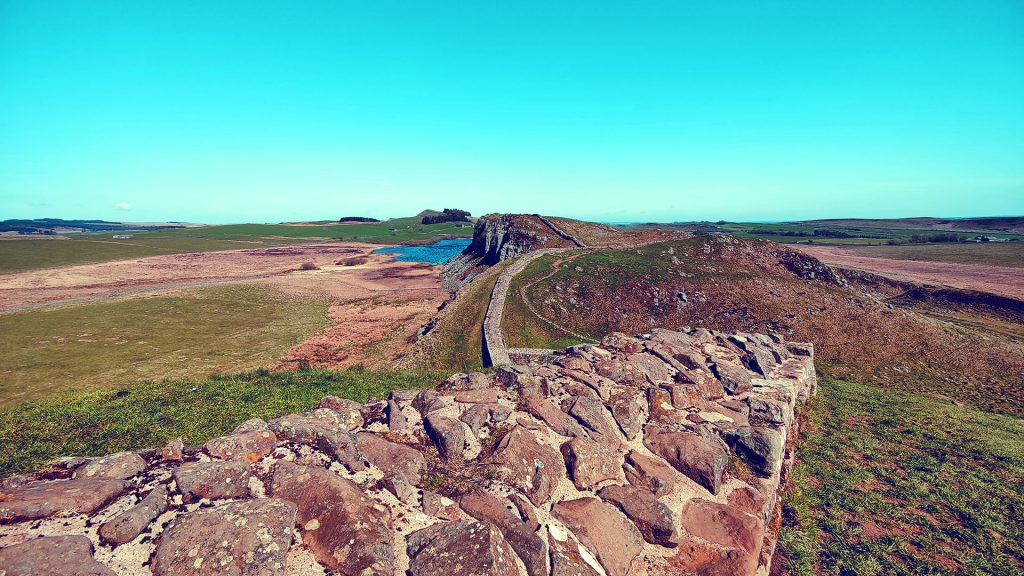
In the small hamlet of Twice Brewed, the brewery and its accompanying inn and pub are the largest structures visible, with acres of grazing fields and farmland surrounding it.
I’ve seen recipes with chicken carcass in the beer, and animal blood, just anything to give it flavour…
Matthew Brown
After two years of research alongside archaeologists and experts, Matthew Brown, the head brewer at Twice Brewed, came up with a blend to resemble the authentic beer from the Roman era. “A lot of it takes influence from Celtic brewing because the Romans weren’t big on drinking beer,” says Matthew. “So first it had to be a low ABV (alcohol by volume) because they would’ve drank it instead of water… the whole point of drinking beer is that you would’ve sanitized it and treated it so it could be stored.”
From the start, the objective of making the brew accurate to the time was a challenge. “Obviously the malt they would’ve used 1900 years ago is gonna be very different from what we use now… so we used a fifty-fifty blend of wheat and barley which from our research is common from that period,” says Matthew.
Interestingly, no hops are used in the beer that Matthew has come up with: “They did not use hops in beer 1900 years ago, especially in Britain. What they would’ve done is come up with the malt and then went around and looked for ingredients that they could’ve added to give it some flavour.”
So how did the brewers then add flavour to their beer? “I’ve seen recipes with chicken carcass in the beer, and animal blood, just anything to give it flavour. They would have gone around in the local area and seen what could be added… we settled on mugwort, meadowsweet and elderflower for our beer and they are all grown locally.”
Honey was also a common ingredient at the time, which was fermented beforehand and gave the beer an extra kick, and Matthew decided to add a tinge of honey to represent that sweetness.
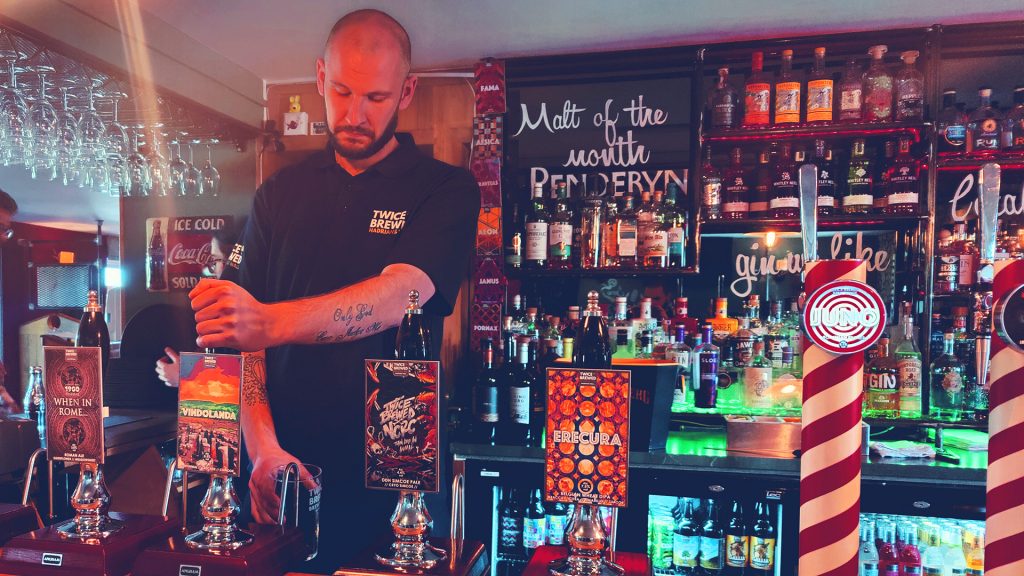
The yeast fermentation for this beer was a difficult portion of the brewing process. “1900 years ago they were spontaneously fermenting it, they would use a clay pot and the yeast would be literally embedded into the pot and you’d keep on putting beer in it for fermentation. It would’ve been really sour back then but modern palette-wise people don’t really want a cask of sour beer.”
Matthew instead decided on using something to give a nod to Atrectus of Belgium, one of the first known professional brewers but with a modern twist to it. “We decided to go for a low flocculating Belgian yeast, which is less historically accurate but still makes the beer slightly sour as it would’ve had it back then. It gives a nice haze to it, and of course back then beer was hazy,” says Matthew.
But as you take a stroll along the wall tracing the same path as the veterans of the Roman army who fought off Picts at the very place, sipping your period-authentic beer, you may wonder how exactly did the Romans influence the British obsession with the pint.
Matthew thinks the answer is rather simple, and the Romans did not have a hand in it at all: “It’s because we can’t produce wine. The UK is one of the best places in the world to grow brewing grain, and we can’t really grow grapes well in our weather.”
The Roman wine drinkers were happy to let their soldiers drink beer…
Dr Max Nelson
But the answer to our question seems to be a lot more complicated than it seems. Dr Max Nelson, a professor at the University of Windsor, an expert on leisure and pleasure during the Roman era and the author of ‘The Barbarian’s Beverage’ thinks there is a social and political connection between beer, Romans and the British.
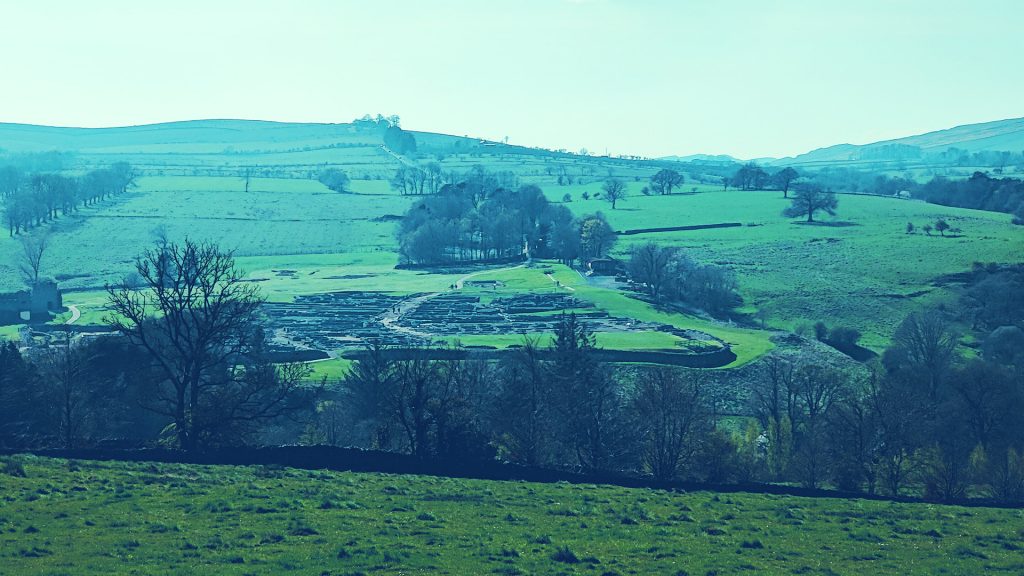
…they thought of beer to be wet and cold which was thought to be feminine…
Dr Max Nelson
The troops stationed on Hadrian’s Wall and the fort at Vindolanda were from across the empire, ranging from Gaul (current-day France and parts of Belgium, Switzerland and northern Italy), Batavia (current-day Holland), Hispania (current-day Spain and Portugal) to Syria; all provinces where beer was the traditional beverage before Romanization following which the adoption of wine was quick.
For these troops, beer was a necessity, and the Roman Empire provided for it. “The Roman wine drinkers were happy to let their soldiers drink beer,” says Dr Nelson. “The Romans were willing for people to continue with their traditions as long as they followed the Roman law.”
But beer did become a point of contention as it remained “the drink of the common man” in Britain, according to Dr Nelson.
“The Romans thought of beer to be rotting cereals… and they thought of beer to be wet and cold which was thought to be feminine while wine was dry and warm which was thought to be masculine,” says Dr Nelson.
“Wine drinking became a marker of elite status… of course during this time Britain was divided into many tribes that had their own Kings and chieftains. One King, Cunobelin, put out coinage that had barley ears on it and another King, Verica, had vine leaves on his coinage. It has been proposed that it was a sign of alliances (with Rome or against it).”
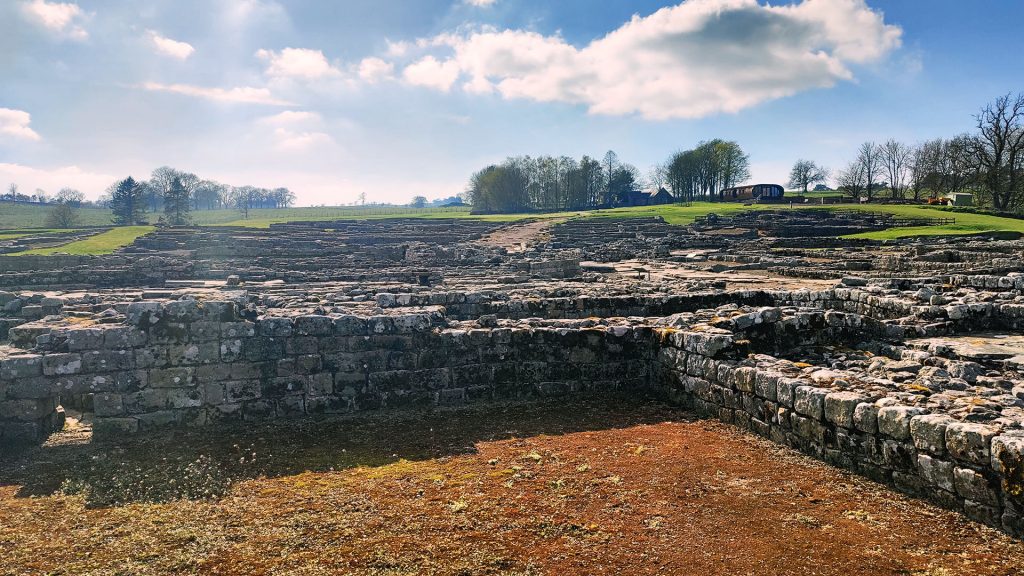
The disdain for beer drinkers across the empire has been well-documented, says Dr Nelson. “For the Romans, beer was inferior to wine, it wasn’t as healthy, it was effeminate and woman-ish, which seems weird to us because we think of beer as very manly. So they had a prejudice against beer.”
The Britons may have also held a similar disdain for wine: “There is a little bit of evidence to suggest that some British saw beer as their own beverage and wine as the new beverage of the conquerors. So in that way, it played more than just a social role, but also a political role.”
As far as we know, there were no pubs before the Romans were in Britain…
Dr Max Nelson
The parts of Roman Britain where the Romanization process (wherein local populations are assimilated into the Roman ‘civilized’ lifestyle) was more prominent, such as London, saw a greater acceptance of wine among the elite, according to Dr Nelson.
This social division also existed within the legions at Hadrian’s Wall and Vindolanda, where officers likely drank imported wine in amphoras (Greek wine containers) while the soldiers drank the cheaper, locally produced beer of differing qualities, says Dr Nelson.
But beyond this national identity of beer in Britain, perhaps the greatest contribution the Romans unintentionally made to British drinking culture was in the form of the pub.
“As far as we know, there were no pubs before the Romans were in Britain and there were pubs after the Romans built whole networks of roads right throughout the territories they conquered. And part of the network included way-stations where people could switch courses or stay overnight, eat and drink,” says Dr Nelson.
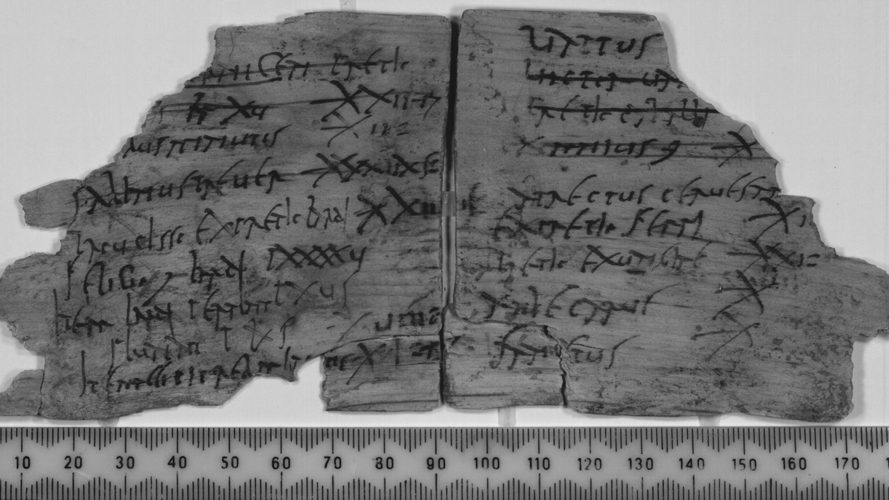
“That seems to be the tradition of a kind of village pub… There’s nothing that says the locals couldn’t go into the inn and have a drink there either. Before the Romans came, people would have had drinks in private settings.”
Of course, there are other reasons why beer has remained the drink of the masses over the years in Britain as other ex-provinces of the Roman Empire such as France and Spain took to wine. A weaker hold over Britain by the Romans as compared to other provinces, unfavourable weather to grow grapes, multiple invasions by Germanic tribes such as the Jutes, Angles and Saxons as well as settlements by Nordic tribes such as the Danes also have a part to play.
But when you pop into your favourite pub for a pint the next time, you can thank the snobbish Romans for uniting the people through a drink they considered barbaric, the beer!
